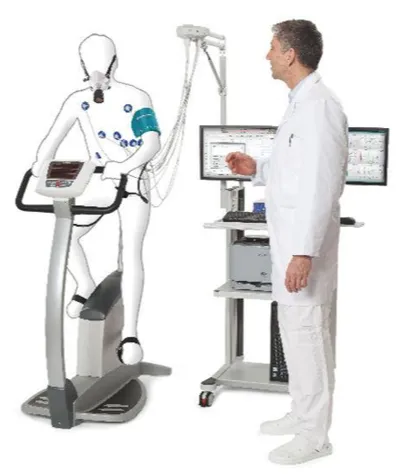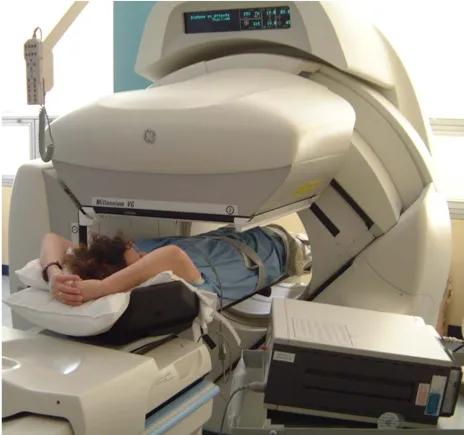THE MIBI
- MIBI is used to assess the blood supply to the myocardium (heart muscle) and therefore to identify one or more areas with insufficient blood supply.
- Occasionally, the examination may reveal scarring (necrosis) from an old infarct (an area where myocardial tissue has been destroyed).
- The test involves inserting a needle into a vein in the arm to inject a small quantity of radioactive material into the circulation. The injection is combined with an exercise test.
- Photographs are then taken for 30 minutes.
- The images obtained reveal any defects in perfusion (irrigation) of the heart muscle.


In practice
- The examination takes place in Nuclear Medicine -1.
- You must register in advance at reception desk no. 3 on the 1st floor.
- Plan to stay at the hospital for around 2 hours.
- It is essential to fast for at least 3 hours (light breakfast in the morning).
- Patients may not take any stimulants (coffee, tea, chocolate) 24 hours before the examination.
- Medication should normally be taken with a small amount of water, if possible at a distance from the examination.
- The bill will be sent to you by the hospital.
- You must register in advance at the central reception desk on the ground floor of Building A.
- Then go to Isotopes (Nuclear Medicine Department): level -1 of Building A.
- The nurse will place a catheter for you.
- You can then go to the ground floor of Building B (Local 59), where the stress test will take place.
- Then return to Isotopes, level -1, for the reading.
- Plan to stay in the hospital for at least 2 hours.
- Medication will normally be taken with a small amount of water, unless the cardiologist has recommended that you do not take certain medicines (Bisoprolol, Tenormin, Tildiem, etc.).
Cardiology Department
Hôpital Delta
Secrétariat
Hôpital de Braine-l'Alleud
Secrétariat
